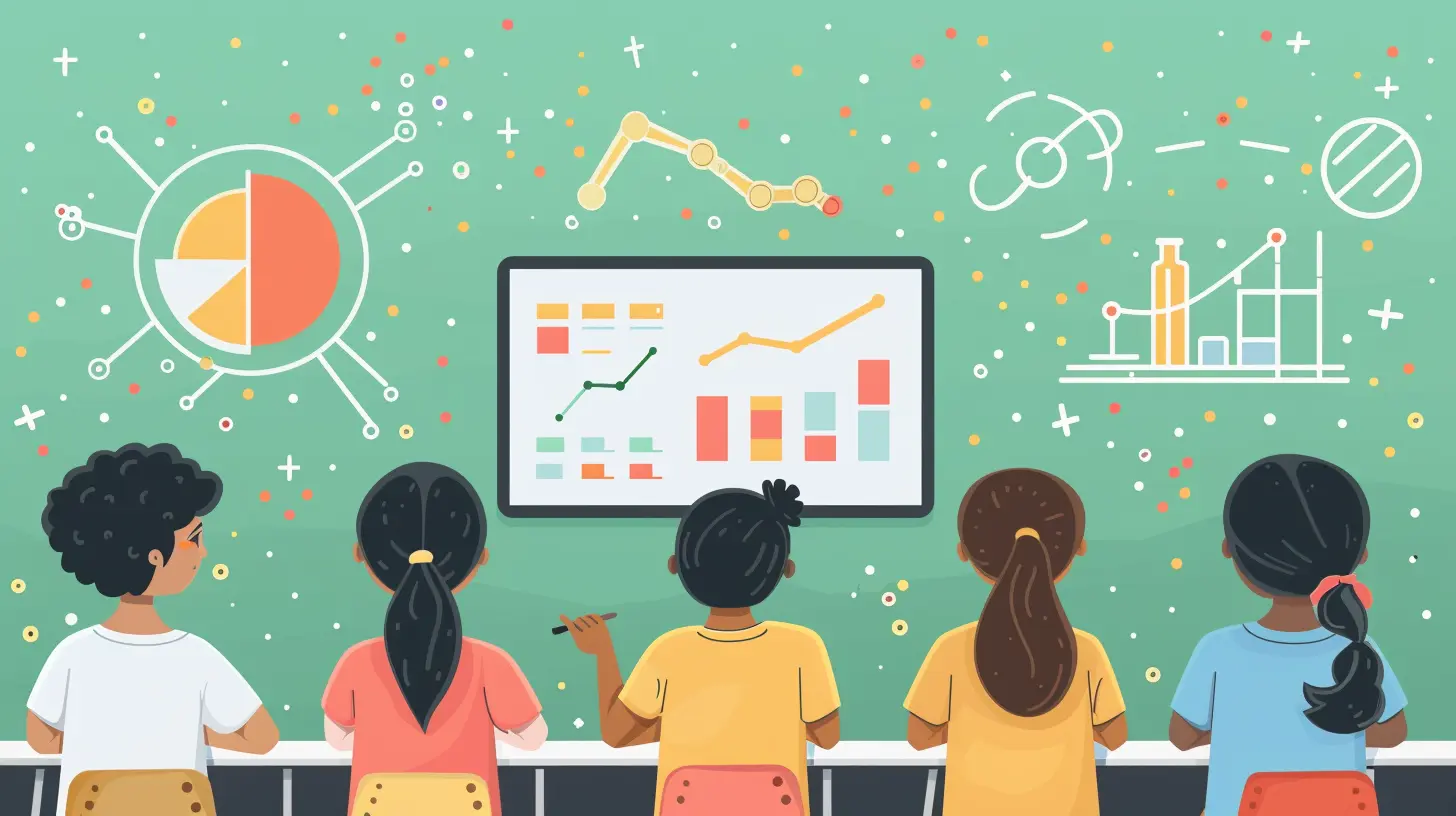Applying Action Research to Improve Classroom Instruction
6 August 2025
If you've ever stood at the front of your classroom and thought, "There has to be a better way to get through to my students," you're not alone. Teaching is as much a craft as it is a science, and even the most seasoned educators know that there’s always room for growth. That’s where action research comes into play.
Action research isn’t some high-level academic jargon—it’s a practical, hands-on approach that helps teachers tweak and improve what they do in the classroom. Think of it like being both the chef and the food critic in your own kitchen. You try a new ingredient (teaching strategy), taste the dish (assess student response), and make adjustments until it’s just right.
So, how exactly can we use action research to make our classrooms better? Grab your coffee, get comfy, and let’s dig deep into this transformative practice.
What is Action Research in Education?
Let’s break it down nice and easy. Action research is a process where teachers ask questions like, “What’s not working in my classroom?” or “How can I improve student engagement?” Then, they systematically test ideas, analyze outcomes, and make changes that are backed by real evidence—not just gut feelings or trends on teacher TikTok.It's basically a cycle of planning, acting, observing, and reflecting. No need for a white lab coat or a Ph.D.—just a willingness to question, learn, and grow.
Why Should Teachers Use Action Research?
Teaching isn’t one-size-fits-all. What works for one group of students might completely flop with another. That’s the beauty of action research—it’s personal. It’s about your classroom, your students, and your goals.Here are some reasons why action research is a game-changer for educators:
- It’s practical. You’re solving real problems you face every day.
- It’s empowering. You’re not waiting around for someone else to "fix" things.
- It’s reflective. You get better by thinking deeply about what’s working—and what’s not.
- It’s immediate. You don’t have to wait for an entire school year to see results.
The Action Research Process: Step-by-Step
Okay, let’s get into the meat of it. Action research isn’t just winging it and hoping for the best. It follows a clear process that keeps things structured and purposeful.1. Identify the Problem
First things first—what exactly do you want to improve? Maybe your students are zoning out during group work. Maybe test scores are low in a specific area. Or perhaps participation is totally tanking.The key here is to zero in on one issue. Don’t try to fix everything all at once—you’ll burn out faster than a stack of ungraded papers on a Friday afternoon.
Grab your teaching journal or a sticky note and write down exactly what’s bugging you.
2. Do Some Background Research
You don’t need to hit the library for this part. Just spend a little time reading articles, watching teacher vlogs, or chatting with coworkers who might’ve faced the same challenge. The goal is to gather ideas and possible strategies.For example, if classroom discussions are falling flat, look into Socratic seminars or think-pair-share techniques. A quick Google search or a scroll through your favorite education group on Facebook can give you tons of inspo.
3. Plan Your Action
Now comes the fun part—design your own little classroom experiment.Let’s say you’ve identified that students aren’t retaining vocabulary words. You’ve read about using movement or kinesthetic learning strategies. So you decide to try a new game that gets students up and moving while learning new terms.
Decide:
- What strategy you’ll use
- How long you’ll try it
- What success will look like
Keep it simple and focused. You’re not rewriting your whole curriculum—just making one smart change.
4. Take Action
Go for it! Try out your strategy and keep detailed notes. You don’t need to be a data scientist here—just jot down what you see.- Are students more engaged?
- Who’s participating more?
- Is the vibe in the room more positive?
You might also collect some tangible data—quizzes, exit tickets, student reflections. The more info, the better.
5. Observe and Analyze
After your trial period (maybe a week or two), it’s time to play detective.Compare the “before” and “after.” Did your strategy make a difference? What surprised you? What didn’t go as planned?
Be honest with yourself. Not every idea will hit it out of the park—and that’s okay. It’s all part of the process.
6. Reflect and Adjust
This is where the magic happens. Think about what worked and what you’ll tweak next time. Maybe the strategy helped, but the timing wasn’t right. Or maybe you need to give it more time to see the full effect.Reflection is the secret sauce of action research. It turns good teachers into great teachers.
7. Share What You Learned
Don’t keep your insights all to yourself! Share your findings with your team, department, or school. Start a blog, post in an educator group, or even lead a PD session.Education is a collaborative field. When you grow, others grow too.
Real-Life Examples of Action Research in Action (Pun Intended)
Let’s bring this concept to life with a few real-world stories.Case 1: Boosting Reading Comprehension
A middle-school English teacher noticed her students were struggling with understanding plot and character development. After a bit of research, she introduced literature circles—small, student-led discussion groups.After six weeks, not only did comprehension scores improve, but students reported enjoying reading more. Bingo!
Case 2: Increasing Student Participation
A high school math teacher found that most students were silent during problem-solving sessions. He tried using a strategy called “no opt-out” questioning—providing support until every student could answer.Guess what? Participation doubled. Students felt more comfortable, and the class had more energy.
Case 3: Reducing Off-Task Behavior
An elementary teacher was at her wits’ end with constant off-task chatter. She implemented a self-monitoring chart where students tracked their own focus.In just a few weeks, off-task behavior dropped dramatically. Even better? Students became more responsible and aware of their own actions.
Tips for Success with Action Research
Before you run off to transform your classroom, here are a few tips to make sure your action research journey is a smooth ride:- Start small. Focus on one change at a time.
- Be flexible. Your first attempt might need some tweaks.
- Keep records. Notes, journals, and data will make reflection easier.
- Celebrate wins. Even tiny improvements are worth a high five.
- Involve students. They can offer priceless insight on what’s working.
Common Myths About Action Research (Let’s Bust ’Em!)
Let’s take a minute to clear the air. There are some common misconceptions floating around, and they might be holding you back.“I don’t have time for this.”
Honestly? You’re probably already doing a version of action research without calling it that. Every time you switch up a lesson or tweak your seating chart, that’s informal action research.“I’m not a researcher.”
If you can observe, reflect, and take notes, you’re already halfway there. You don’t need a research degree—just a curious mind and a passion for improvement.“It has to be perfect.”
Nope. Action research is about learning, not perfection. Mistakes are part of the process, not a sign that you’ve failed.The Long-Term Impact of Action Research
Here’s the thing: action research isn’t just a one-off project. It can become a way of thinking—a mindset that keeps you constantly growing. Over time, you’ll build a powerful toolkit of strategies backed by real classroom data, not fads or textbook theories.And the best part? Your students will notice. They’ll feel your energy, your commitment, and your love for learning. You’ll become a model of lifelong learning—and that’s one of the best lessons you can teach.
Final Thoughts
Action research is more than just a buzzword; it’s a powerful, practical approach to improving instruction right where it matters most—your classroom. It puts the power in your hands, allowing you to shape a learning environment that fits your students and your teaching style.So go ahead—be bold, ask questions, and try something new. Your best teaching days are just around the corner.
all images in this post were generated using AI tools
Category:
Educational ResearchAuthor:

Madeleine Newton
Discussion
rate this article
1 comments
Gisela Reynolds
Great insights! Action research truly empowers educators to enhance their teaching and foster student engagement effectively.
August 13, 2025 at 12:29 PM

Madeleine Newton
Thank you! I'm glad you found the insights valuable—action research is indeed a powerful tool for enhancing teaching and student engagement.


